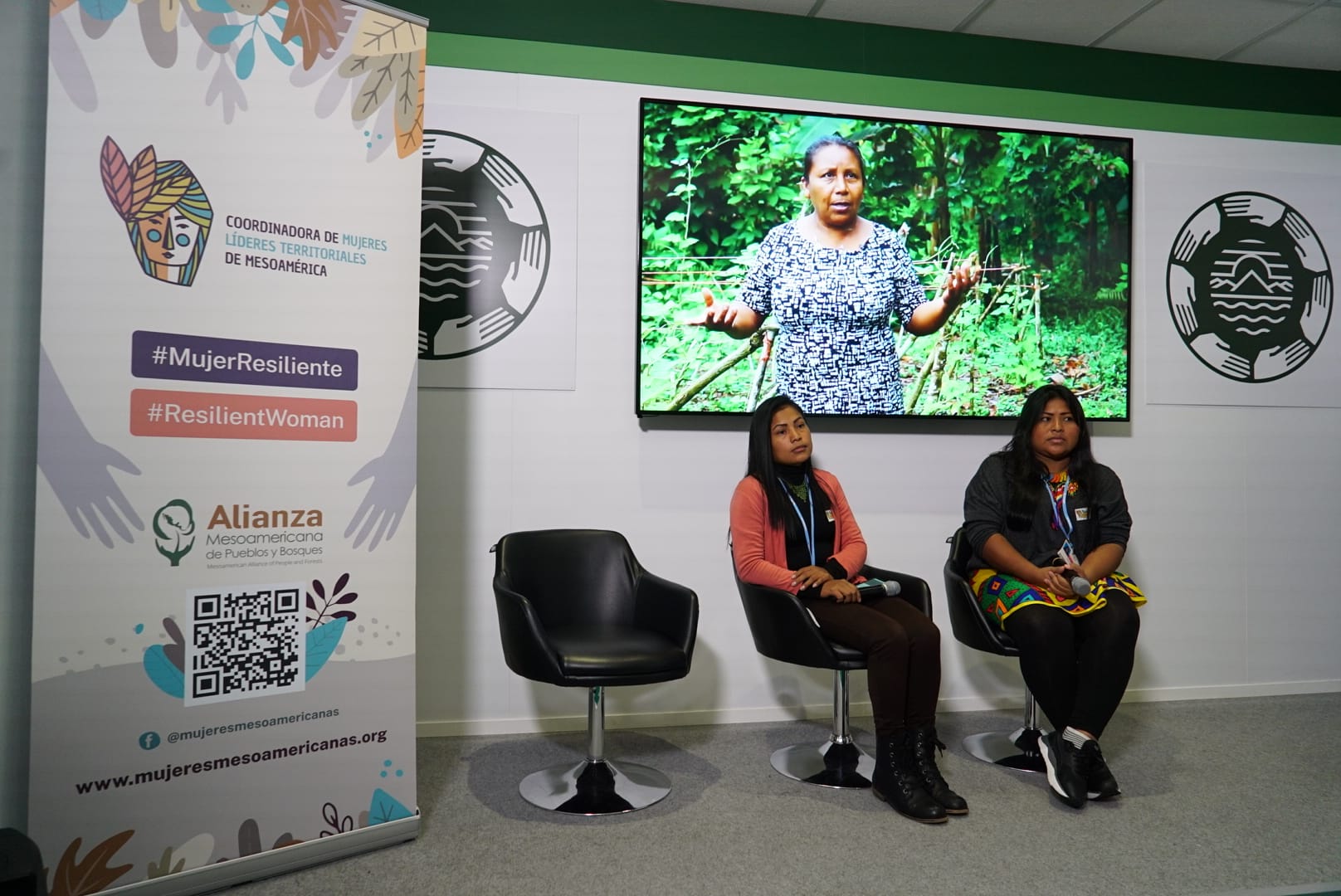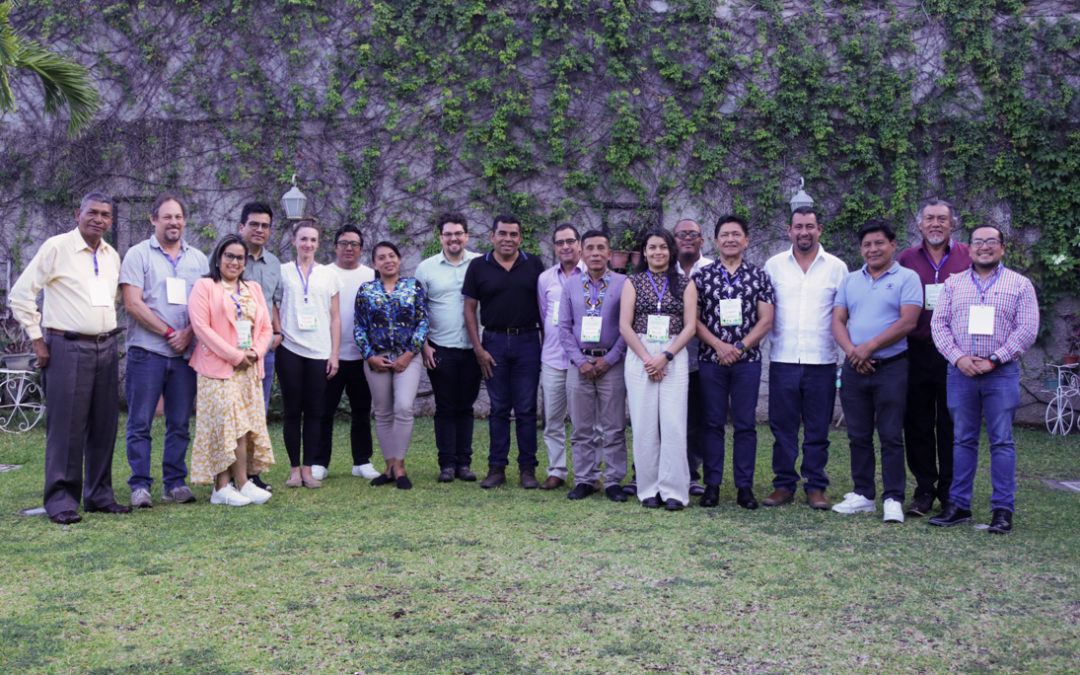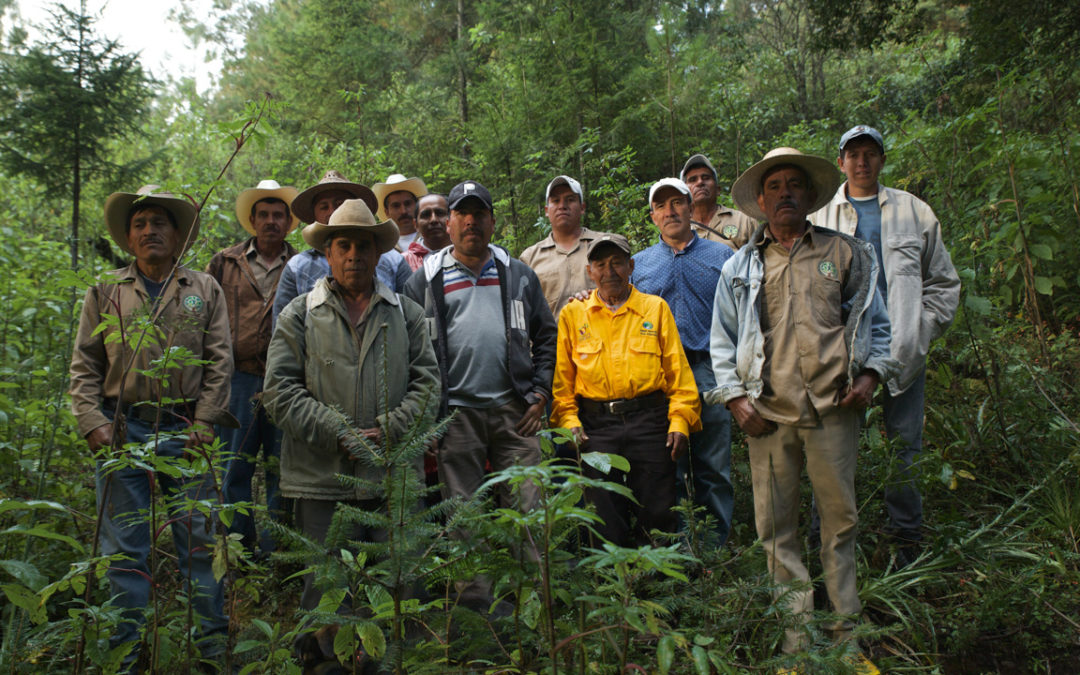Faced with the impact of climate change on the livelihoods of indigenous peoples and local communities, the territorial women leaders of Mesoamerica have developed their own financial alternative to overcome the current deficiency in direct funds for local women.
FOMUJER is a fund created for indigenous and community women who inhabit and care for the forests of Mesoamerica, with the aim of strengthening their economic capacities, improving their participation in local governance and reducing their vulnerability to climate change. FOMUJER finances solutions created, managed and executed by territorial women in the region, such as the regeneration and preservation of native forests and the strengthening of local enterprises based on their traditional knowledge.
In order to make visible the potential of investing in local communities with a gender perspective, they will be sharing examples of good environmental practices led by territorial women leaders in the event “Experiences and models of community resilience to climate change”, held this November 10, from 12:45 to 13:45 pm (BST) in the Indigenous Pavilion of the COP26 in Glasgow, United Kingdom.
Good practices led by women in Mesoamerica
In Costa Rica, the women of the Kábata Könana Association of the Talamanca Bribri and Cabécar territory, devised the Fair “Indigenous Virtual Productive Barter” to ensure the food sovereignty of their families and generate fair employment alternatives to improve living conditions in their communities. This initiative emerged during the crisis caused by the COVID 19 pandemic: unable to sell their products in city markets, women quickly devised a local market to exchange and sell organic products, food, medicinal plants and handicrafts: everything grown, collected and made by themselves.
The fair rescues the indigenous concept of “barter” while linking it to new instant messaging technologies to offer products among nearby communities. Once a moth a fair is coordinated through a Network of Indigenous Women Producers called “Weavers of Knowledge”, who communicate by WhatsApp to find out what products will be available for sale or exchange each month. The Weavers of Knowledge are also in charge of collecting native seeds and visiting home gardens to collect and share information on ancestral planting practices that can help improve their production processes.
This initiative has served as a model for other local communities in the region and for this reason, this year it received the prestigious Equator Prize. Heily Sánchez, one of our representatives at the COP, will speak at the event on November 10 from her own experience as part of the Kábata Könana Women’s Association, together with Sara Omi, Emberá leader and president of the Coordinator of Territorial Women Leaders.
Another example that we will shared at the event is the creation of native plant nurseries led by the women of FEPROAH in Honduras, the creation of a community seafood bank for Miskito women on the Caribbean Coast of Nicaragua and “Living Pharmacies”, the first project of the nascent “Bundorgan” Guna Women’s Network of Panama: a reforestation project that also rescues traditional Guna medicine knowledges. This initiative consists of reforesting with native medicinal plants. The first hectare of Living Pharmacies will be planted in the heart of the Guna Yala region and will be for community use.
Breaking gaps
The empowerment process for territorial women leaders is complex. Many have overcome situations of domestic violence, harassment and discrimination because they are women, in addition to facing the socio-economic challenges of the historical exclusion of their communities. Their leadership comes with children, with responsibilities at home and it also implies de-constructing certain inherited patterns and behaviors, to define themselves as protagonists of their own stories.
For example, until just ten years ago, Guna women could not participate in decision-making processes because they were not invited to the Guna Culture Congresses, where the caciques gathered -who were only men- met to dialogue and plan actions. Yet today, the Bundorgan Guna Women’s Network participates in these Congresses with power, voice and vote. They have also created a Guna Women’s Congress, as an independent space for dialogue and consultation to address the women’s agenda and manage their own projects for the benefit of their communities and forests.
This advance helps us to remember that each participation space for community women is the result of the effort and perseverance of many. At the same time, it is an example of the potential in empowering indigenous and community women.
Financing agroforestry projects led by indigenous and community women is proven to be more effective in mitigating the impacts of climate change, generating incomes and supporting the development of their communities. The gender approach must be one of the transversal axes of the environmental funds to combat Climate Change, that is why this year the territorial women leaders are participating with solid proposals in the World Climate Conference(COP 26).



